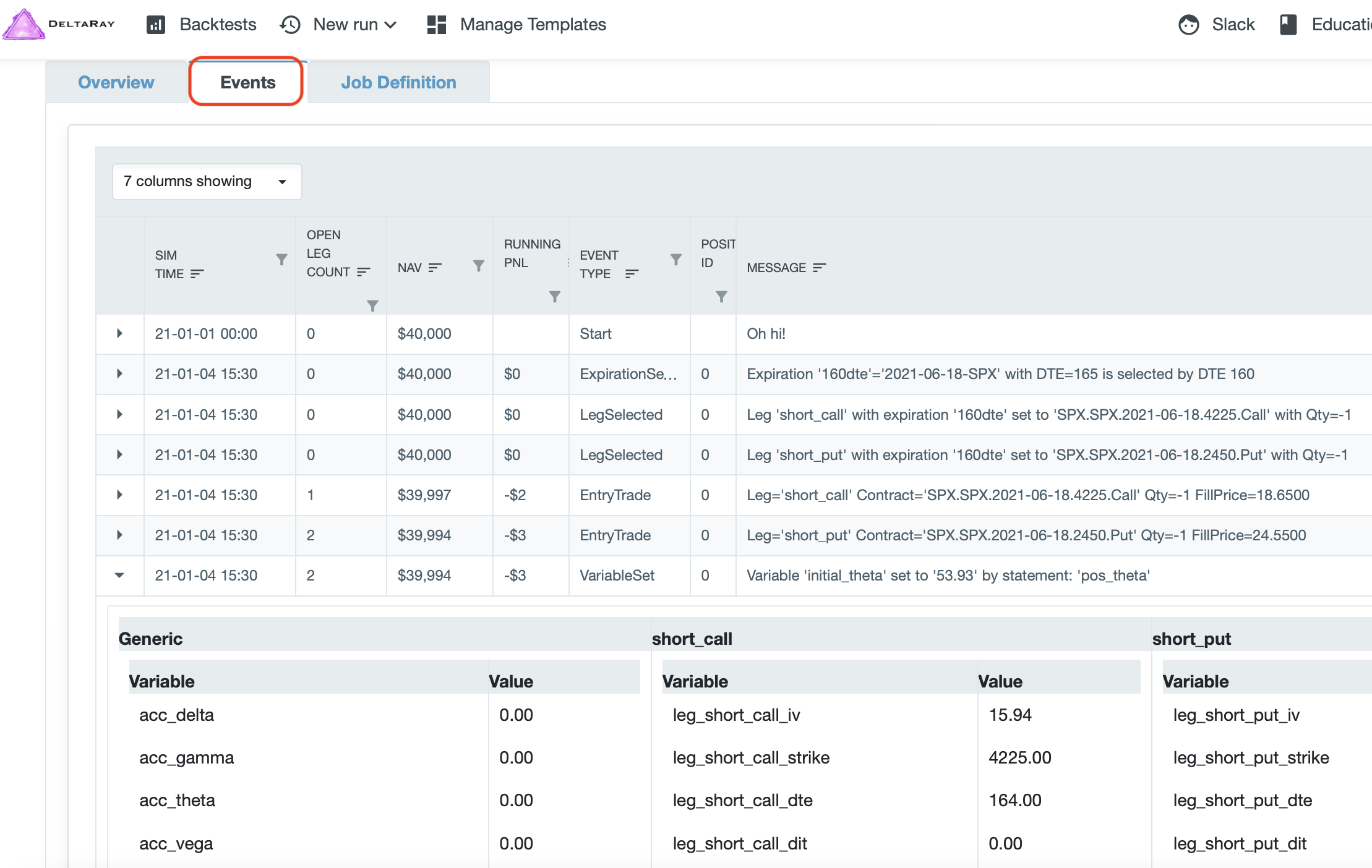Event Log Export
MesoSim records its key execution steps in the Event Log stream, called Blotter Events. The events recorded in Blotter are visible on the Backtest Details page under the ‘Events’ tab:

With MesoSim version 2.1.0, the event log becomes available to export, enabling the users to do post-processing and custom analytics.
The event log format is JSON. During the download, the JSON is compressed, and a zip file is returned, which can easily be extracted on all platforms.
Fields of the Event log
BlotterEvent {
DateTime EventTime // The real time when the event happened
DateTime? SimTime // Simulation time for the event
BlotterEventType EventType // See BlotterEventType for details
string Message // Message associated with the event
bool Invested // Boolean flag of investment state
decimal? NAV // Net Asset Value
decimal? PnL // The running Profit and Loss
int TradeCnt // Number of trades executed so far
int SettlementCnt // Number of settlements so far
int OpenLegCnt // Number of open legs
TradeEventDto? TradeEvent // Trade information (
Dictionary<string, decimal>? Vars // ScriptEngine’s variables
int? PositionId // The ID of the position we
}
BlotterEventType {
// Strategy level events
EntrySignal,
EntryAborted,
ExitSignal,
AdjustmentSignal,
AdjustmentDetail,
AdjustmentAborted,
ExpirationSelected,
LegSelected,
VariableSet,
IndicatorInitialized,
IndicatorFailed,
// Broker level events
EntryTrade,
ExitTrade,
Settlement,
PriceZero,
StrikeNotFound,
MissingData,
EndOfDay,
Start,
Finish,
Failed,
}
TradeEvent {
int TradeId // Monotonically increasing TradeId
OptionContract Contract // Contract associated with the Trade
decimal Price // Execution price for the trade
decimal Qty // Qty of the trade
}
OptionContract {
string Underlying // Underlying symbol, such as SPX
string Root // The root (option class). e.g. SPX or SPXW
OptionType Type // Type of the option: Put or Call
DateTime Expiration // Expiration of the contract
decimal Strike // Strike price of the contract
int Multiplier // Share multiplier of the contract. Defaults to 100
}
Notable event types:
- EntrySignal: When Entry.Condition is populated, and any of its statements become true; it is triggered
- EntryAborted: When Entry.AbortConditions is populated, and any of its statements become true, it is triggered
- ExitSignal: When either the max days in trade is reached, or any of the exit condition is met
- EndOfDay: Triggered once every day. When the Message field equals “DIT=0”, it contains the initial set of variables when an update is done daily.
- LegSelected: Contains details around the log chosen by the selectors
Post-processing of the events can be done using various tools, such as Microsoft Excel (using PowerQuery), jq or Python.
